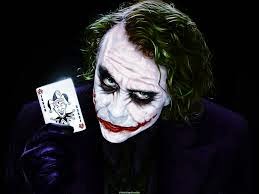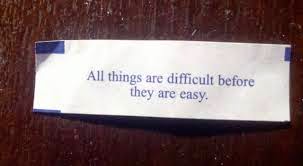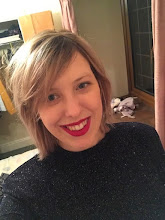Today's A to Z blog challenge letter is brought to you by the letter S!
Today I thought I'd share an excerpt from
Synthetica with you. If you're new to my blog,
Synthetica is my debut YA sci-fi novel. Below is the blurb of the novel, for those of you who are new:
"Seventeen-year-old Anais Finch lives in a world where everyone is born beautiful, where every dream is a possibility - and where their every move and every piece of personal information is recorded by an ID picochip inserted behind their right ear. When technology giant, Civitas, finally announces the launch of their highly anticipated Scholarly Learning Programs, which allow people to download and learn any subject instantly, Anais can hardly wait.
But not everyone is pleased with society's progress, and not everyone wants to fit in. When Anais witnesses a brutal murder on an innocent citizen and is implicated in the crime, she becomes determined to uncover the truth, especially when others like it begin to occur all over the city. But it may already be too late for Anais to stop the man who calls himself 'the Hacker' before he commits his most appalling crime yet."
Today's excerpt comes from one of my favourite parts of the book - the Hacker, not content with the way one of underworld contacts has been doing business, finally decides to show his true colours. I've always felt that this is a kind of turning point in the book; we already know the Hacker is unhinged, based on his past actions, but it's only in this scene that we begin to realise that he'll stop at nothing to get what he wants. What makes him so dangerous if that it doesn't matter if you're on his side or not; if he believes you're standing in his way, it's pretty much the end of the line.
Enjoy the excerpt!
"It was only polite, after all, that one informed someone when
their services were no longer required.
So it was completely beyond him why Denzel was on his knees,
begging and crying. It didn't evoke any sympathy in him; if anything
it simply made him more contemptuous.
Or maybe it had something to do with the knife in his hand. Every
time Denzel glanced at it, he burst into renewed sobs.
“P-please,
just give me a chance, give me a chance. You'll have your money from
the deal, I wasn't keeping from you, I swear, I swear. An' I sold six
more of those chips today and I told 'em that if they had any
friends, to send them my way. Word's getting out – I just need a
little more time. Just a bit longer. Please, please...” Denzel
seemed inconsolable as he dissolved into tears.
His brow creased as he tried to imagine what was going through
this pitiful man's head. And then he decided he didn't particularly
care.
“Get.
Up.”
His voice was soft, but he still saw Denzel flinch at the
hoarseness of it, at how wrong it sounded. He was used to people
recoiling at his voice. He didn't care so long as they still listened
to what he had to say. Denzel gave a loud sniff and forced himself to
his feet.
He took a step towards Denzel, and Denzel cowered back.
“You
can keep the money.”
Denzel looked as though he couldn't believe his ears.
“W-what?”
“This
was never about the money. I have no use for it. Keep it.”
Relief washed over Denzel's face and he began to gush in his
relief.
“Thank
you, thank you, I -”
“Why
are you thanking me?”
Denzel stopped. His gaze kept flicking back to the knife.
“I
am running out of time. And patience. You told me you could sell.
Each and every one. Of those programs within a week. You have not.
Lived up to my expectations. You have failed me.”
Denzel remained silent, stealing terrified glances between the
knife and the masked face in front of him.
“I
have no use for failures.”
He lifted up the knife and Denzel squealed, stumbling backwards
and falling onto the floor.
“No
– no! Please! I can still help you! Those programs – they're
amazing, I ain't never seen a copy that good before. They're just
like the real thing would be. I can sell them, I swear, I swear!”
He paused.
“You
really. Think they're. That good?” His voice was still as soft as he
could make it.
Denzel nodded furiously.
“They're
real good. They'd pass any test, honest.” Denzel's voice was almost
a squeak in his terror.
He looked down at Denzel grovelling on the floor. He was almost
tempted to tell Denzel what his programs actually did – how they
were so much more than anything Civitas could ever dream of. But then
he decided it would be much more fun to show him.
“Denzel,”
his hoarse voice was quiet but the cruel, amused undertone was
unmistakable. “Would you like me show you exactly how my programs
work?”"
Hope you liked it!
Happy Wednesday everyone!




















































